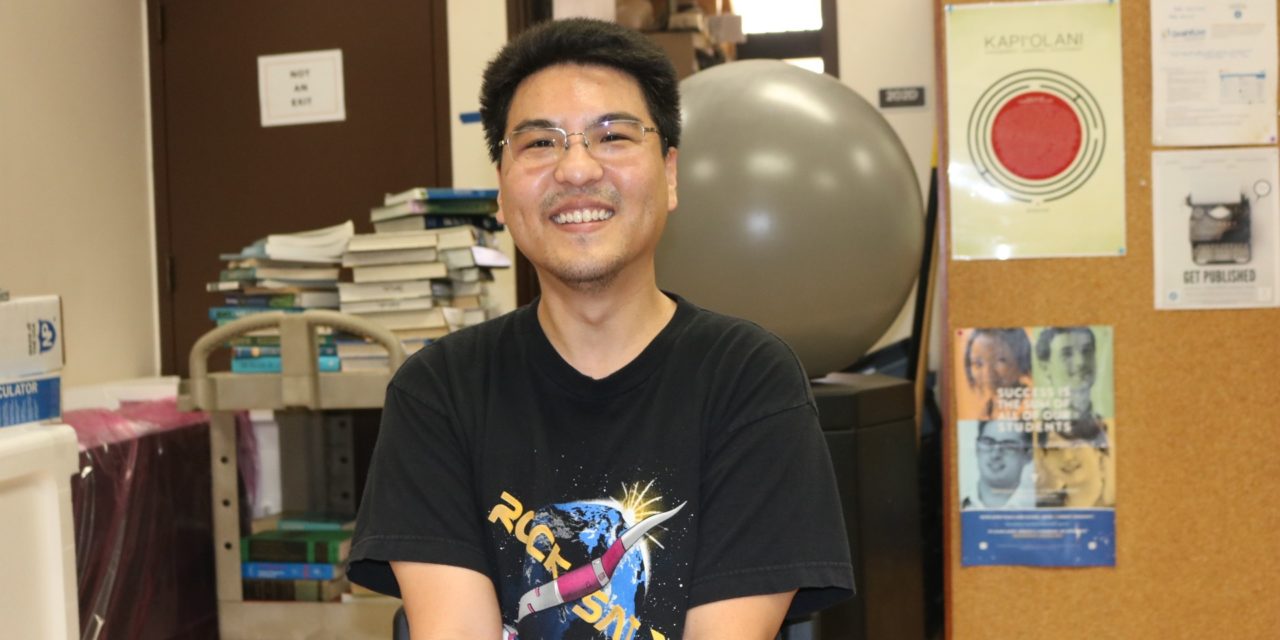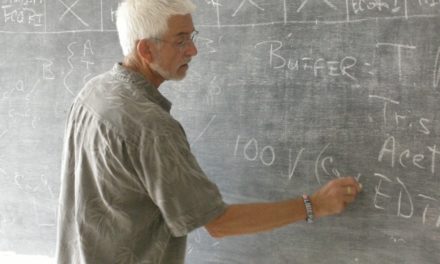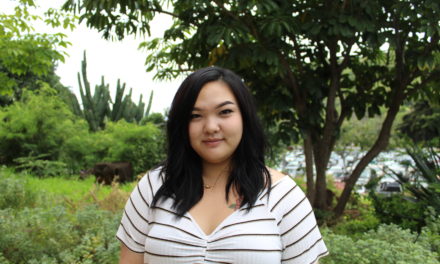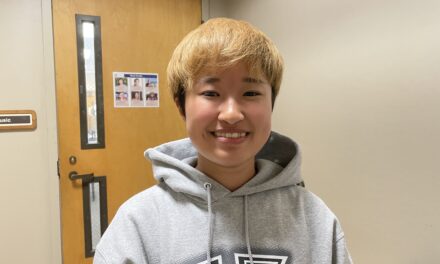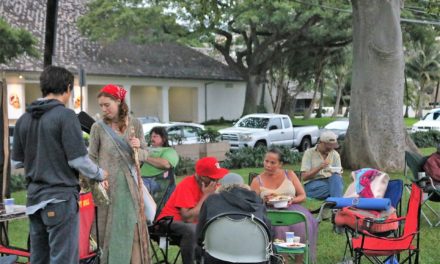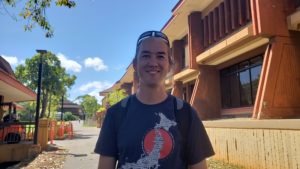BY KAYLA VALERA | STAFF WRITER
Professor Aaron Hanai has taught in the departments of Physics, Civil Engineering, Mechanical Engineering, Electrical Engineering, and Mathematics at KCC for the past six years and has since played an active role in the Science, Technology, Engineering and Mathematics (STEM) program. Committing his time to extracurricular activities such as the Hawaiʻi Calculus Academy summer program and the Engineers for a Sustainable World program, Hanai goes above and beyond to assist the future engineers and scientists, which are his students.
Before teaching at KCC in 2011, Hanai had worked at the Marine Automation System Engineers (MASE) as a Senior Systems Engineer from 2003 to 2010. His work as an engineer involved operating and designing Automated Underwater Vehicles (AUVs) for the United States Navy. He was referred to this position by his UH Mānoa professor while studying for his Master’s degree in Mechanical Engineering, in which he was conducting research in laser technology at the time.
Prior to that, Hanai had received a Bachelor’s degree in Physics at UH Mānoa with a concentration in autonomous arms for robots for his degree’s research projects. While working for MASE, he decided to go back to school to obtain a Doctorate’s degree in Mechanical Engineering, specifically studying robot arms and autonomous manipulation.
Having gained exposure to the world of professional engineering, Hanai thereafter decided to take up lecturing at KCC. Besides teaching during the fall and spring terms, he dedicates six weeks of his summer to KCC’s chapter of the Hawaiʻi Calculus Academy program. During the summer sessions, he teaches an accelerated version of his Science 295 STEM Research in Engineering course.
Besides helping the students in the summer course to create their engineering project, he helps these aspiring engineers with a further demonstration of their project to be displayed at a professional symposium. This process requires more steps than what is expected of students in his traditional course, but Hanai enjoys guiding the students through their engineering iterations and creating an innovative design from their project.
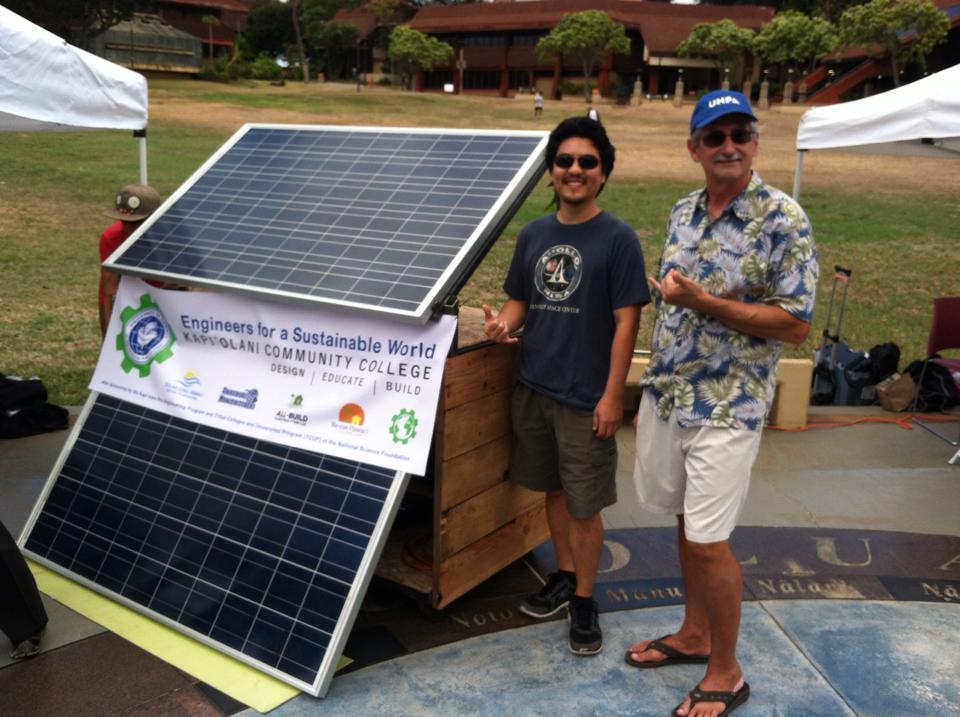
With the Engineers for a Sustainable World (ESW), Professor Hanai has helped projects such as the Mobile Solar Power Station. (Photo Courtesy of ESW at KCC)
“Teaching classes is only a part of the job,” said Hanai on his teaching position at KCC. Aside from lecturing, Hanai tries to make his class as relevant and realistic to the demands of a working engineer or scientist by incorporating peer collaborations and sustainable themes to his assigned projects.
Hanai believes that sustainability is a topic that should be widely covered by engineers since engineering, in its nature, cultivates “problem solvers” who specialize in different types of problems that are critical to society.
The effort of integrating sustainability concepts into his class is especially carried out by his select S-Designation courses. Being one of the STEM professors who instructs these types of courses along with other professors such as Wendy Kuntz, Justin Carland, and Mike Ross, Hanai outlines his class around sustainability related problems and labels his class as such on the Kapiʻolani Class Availability description. For the Fall 2017 semester, his Physics 170 and Mechanical Engineering 213 will be geared toward this kind of learning in particular.
In addition to his S-Designation courses, Hanai acts as one of the faculty leaders of the school club, Engineers for a Sustainable World (ESW)–which was brought about by his former engineering student and KCC alumnus, Jason Salseg. This KCC chapter of the national network, ESW, has done a few projects since its creation in 2015, such as the Mobile Solar Power Station and the Rain Barrel Diversion System Project for KCC’s Ecology Club’s Rain Garden.
For those who are interested in becoming an engineer or scientist, Hanai highly encourages students to make time to join a club or project that’s innovative and new to you. He believes that simply taking classes is not enough. It is crucial for budding engineers or scientists to gain exposure to different fields and build up a professional network in order to secure a job after receiving your degree.

